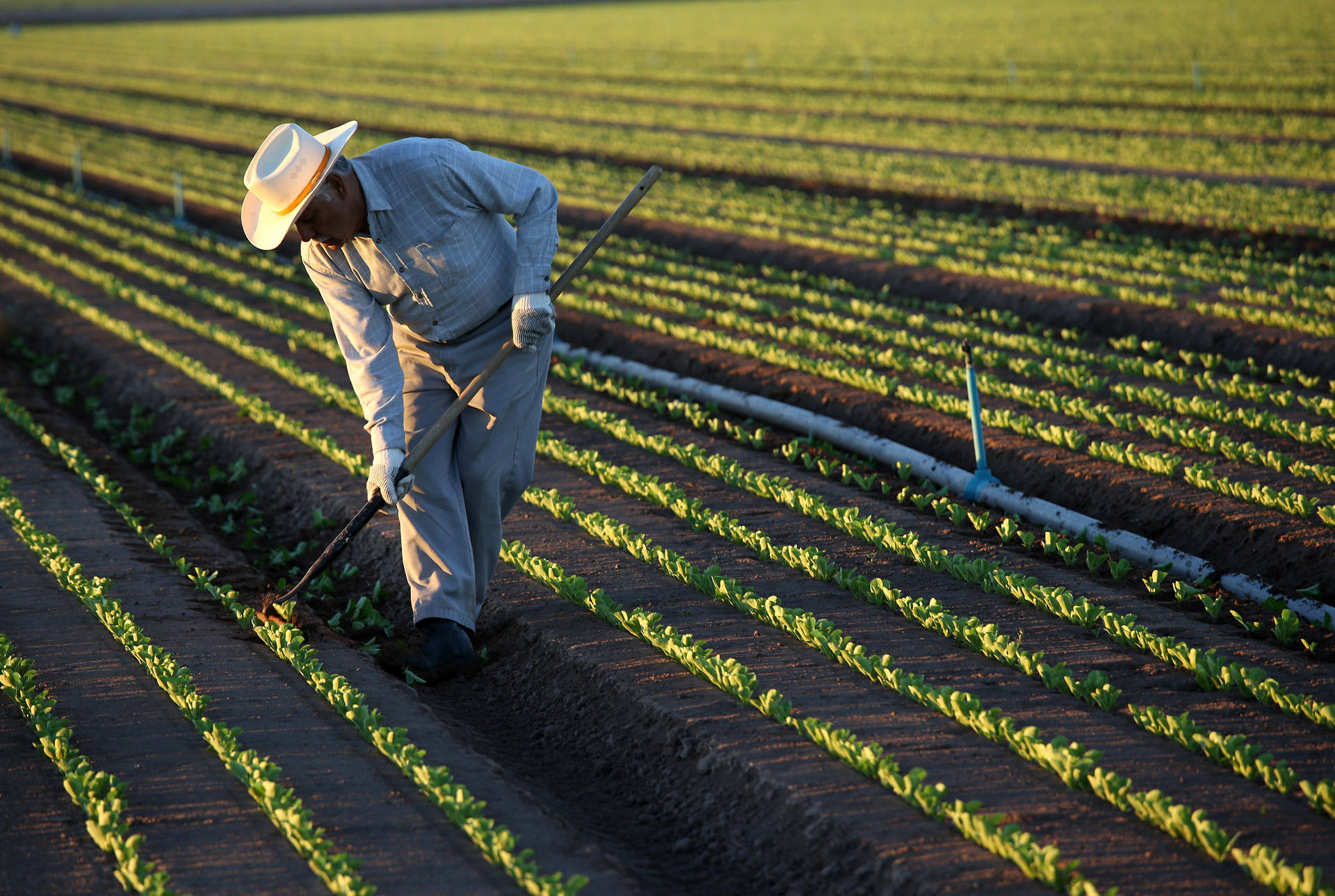There has been considerable coverage lately about the human effects of President Trump’s stricter immigration policies, such as families torn apart by deportations. But there are also economic effects that could have big implications for several key sectors in California, according to the latest UCLA Anderson Forecast released Wednesday morning.
"The threat to deport millions of undocumented immigrants, a threat that the current Attorney General has endorsed, is a risk to the forecast," the report states. "Were this to occur, there could well be a significant reduction in the production of food, in food processing, particularly the slaughter and preparation of meat products, in garment manufacturing and in residential construction."
The estimated 839,300 people who work in California's agriculture industry could be particularly affected.
“It’s estimated by the U.S. Department of Agriculture that at least 50 percent of those who do the harvesting are undocumented," says UCLA Anderson senior economist Jerry Nickelsburg. "If they’re not there, who’s going to pick the crops?”
The Anderson economists usually provide precise numbers to illustrate how California’s economy would be impacted by such policies, but in this case they’re in the dark, like everyone else, about what specific actions the administration will take, such as rounding up immigrants here illegally.

